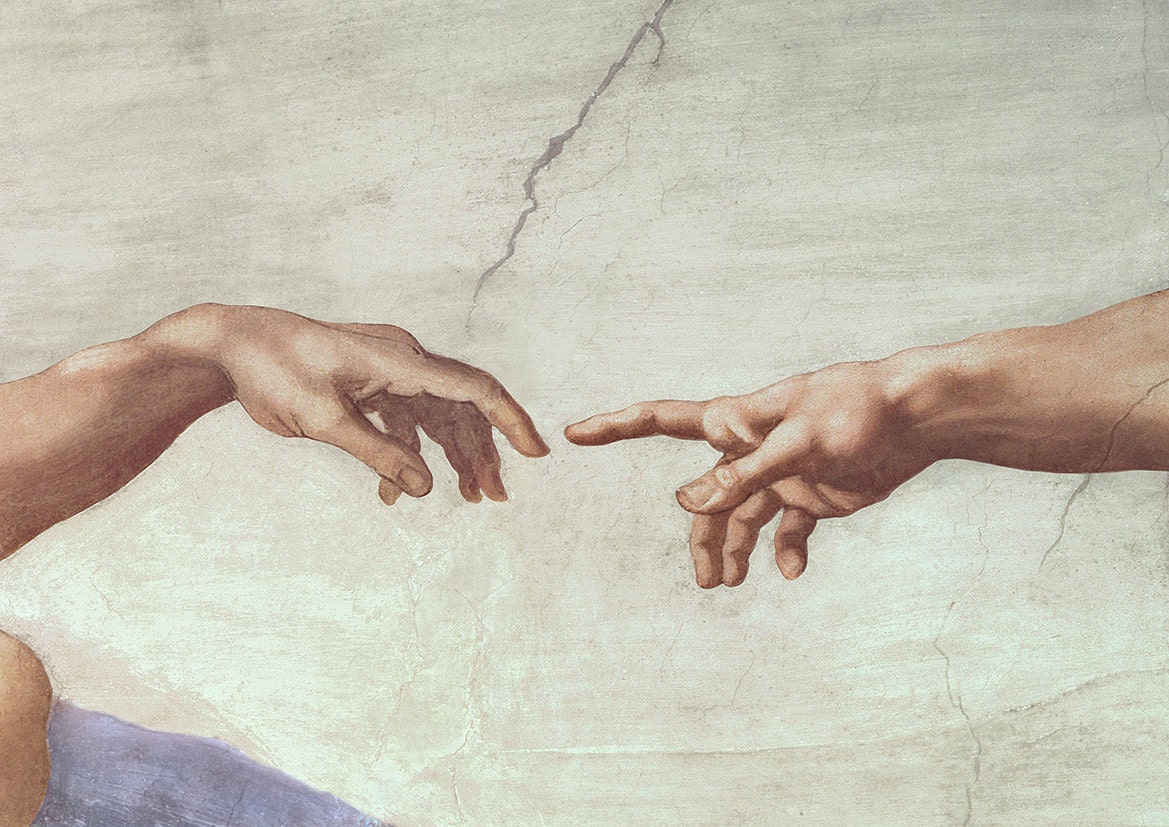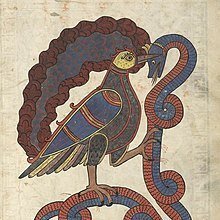-
Content count
1,394 -
Joined
-
Last visited
-
Days Won
7
Posts posted by Sir Darius the Clairvoyent
-
-
58 minutes ago, Nungali said:And this is why sometimes, for some people I will recommend Israel Regardie ; the guy was a fully trained magician and psychiatrist
I have friends over, so I’ll resport short and get back to you shortly. But this made me think of something, in large part inspired by @Shadow_self. That modern science, specifically psychology and medicine is BS.
A more holistic approach to human health is needed. I mean, lonliness and stress is more harmfull than smoking. A pill can’t solve that.
I heard a beautiful metaphor on the radio a few days ago: if a bunch of fish end up dead in a polluted lake, you are not going to give the fish medicine, but instead clean up the lake.
-
1 hour ago, Daniel said:I relate to all of it.
I wonder if we would feel healthier if it was viewed in religious terms, demons and angels, and not as an disorder. Even if it is entirely biological, there must be a reason that we have the capacity for it, no?
I am not able to provide a reference, but I once heard that in traditional societies, psychotic people were often considered shamans.
-
We all know that a chicken salad is better for you than a Big Mac. Yet many eat way more Big Mac than salad. Even if this is not a problem for you, I think it is safe to say that we humans often do things we know are bad for us, while avoiding actions that would lead to growth, to a greater or lesser degree.
I find this perplexing. It is almost like you are not one entity, but a series of competing ones, some acting against your (you as in the sense it is useally used) best interrest.
I guess much of it might be down to the discrepancy between the our biological nature, the environment it is adapted to and a failure to readjust to modernity.
What do you think?
-
So… trough out most my life I have been pretty hard working. Not necessarily in the sense of academic or career success, but in identifying what I want, make a plan and work towards it. I feel like I have lost this drive.
Thoughts?
-
5 minutes ago, Daniel said:I relate to all of it.
I have shared this before, and I am aware you know him, but in my harder periods, I turn to this song:
pure perfection
-
 1
1
-
-
12 hours ago, Sanity Check said:Two career options I considered were stock / options trading and sports gambling.
If you want to succeed in stocks, going in to politics is way more profitable than an education and working at Wall Street

But you are without a doubt correct in that the game is rigged. Have this absolutely clear: betting and gambling companies offer their services because, in the long term, they always win. Maybe a very small amount of people are able to beat it without cheating, but the companies will then simply ban you.
Likewise, if you hire an investor to invest your money, they earn their income with fees they charge you, not their ability to invest wisely (for the most part).
-
 1
1
-
-
So, this is a personal one. But it is anonymous and I have a good impression of the folks here.
I have had experiences that I would characterise as super natural/spiritual and others as delusions. I am not psychothic, but I do know that I am at an increased risk of developing it, and have experienced tendencies in the past. Whats scary about it, is that it appears just as real as anything else. Lets say that I suddnely under the delusion that the CIA was trying to assinate me (I am not, just for illustration haha). That conviction would appear just as real to me as the fact that I am writing these words, right now. What scares me about this, is that once you start questioning your ability to distingiush whats real and whats not, you start questioning everything.
On the other hand, I recieved "messages" that I would characterize as spiritual. Helpfull. As if some force, imagined or not, were communicating truths and insights and advice to me.
My question is, if anyone can relate or if they have any advice? One thing I intend to start doing, is grounding/presence. Any ressources that could be of help, or "just chill"?
-
 1
1
-
-
-
1 hour ago, Daniel said:That's how I'm reading it. The disciple is still bound. Not free. How do you read it?
You know the famous Nietzche quote, «God is dead and we have killed him,» right. This is often interperted as an atheistic statement, however, I and many other believe it is more a statement about how enlightenment thought, rationalism, scientism whatever, have made God obsolete.
And by doing that, removing God from the equation, the long held moral convictions and traditions lost it’s authority. So, how do we navigate in this world where the long held beliefs no longer hold any power, and nihilism rules? A world where there is no higher power, no plan, no meaning, no objective right or wrong?
By creating your own values, self overcoming, creating, saying yes to life (according to Nietzche). This is the so called Übermench (over man). Asking people to find themself and not be mere diciples of a new prophet is extremely congruent with his philosophy, and «think for yourself,» is by no means a way of telling people how to think.
Know thyself.
Here, the three metamorphoses are relevant as well: the camel (following dogma), turning in to the rebellious lion, before achieving its ultimate form: the creative and playful child.
«People have never asked me as they should have done, what the name of Zarathustra precisely meant in my mouth, in the mouth of the first immoralist; for that which distinguishes this Persian from all others in the past is the very fact that he was the exact reverse of an immoralist. Zarathustra was the first to see in the struggle between good and evil the essential wheel in the working of things. The translation of morality into the realm of metaphysics, as force, cause, end-in-itself, is his work. But the very question suggests its own answer. Zarathustra created this most portentous of all errors,—morality; therefore he must be the first to expose it. Not only because he has had longer and greater experience of the subject than any other thinker,—all history is indeed the experimental refutation of the theory of the so-called moral order of things,—but because of the more important fact that Zarathustra was the most truthful of thinkers. In his teaching alone is truthfulness upheld as the highest virtue—that is to say, as the reverse of the cowardice of the "idealist" who takes to his heels at the sight of reality. Zarathustra has more pluck in his body than all other thinkers put together. To tell the truth and to aim straight: that is the first Persian virtue. Have I made myself clear? ... The overcoming of morality by itself, through truthfulness, the moralist's overcoming of himself in his opposite—in me—that is what the name Zarathustra means in my mouth.»
— Ecce Homo, "Why I Am a Fatality"
-
 1
1
-
-
3 minutes ago, Daniel said:Right!
What comes next?
This:
«Now I go alone, my disciples, You too, go now alone. Thus I want it. Go away from me and resist Zarathustra! And even better: be ashamed of him! Perhaps he deceived you… One pays a teacher badly if one always remains nothing but a pupil. And why do you not want to pluck at my wreath? You revere me; but what if your reverence tumbles one day? Beware lest a statue slay you. You say that you believe in Zarathustra? But what matters Zarathustra? You are my believers – but what matter all believers? You had not yet sought yourselves; and you found me. Thus do all believers; therefore all faith amounts to so little. Now I bid you to lose me and find yourselves; and only then when you have all denied me will I return to you… that I may celebrate the great noon with you.»
-
 1
1
-
-
24 minutes ago, Daniel said:It can be, and often is.
I moralize because, moral rules are shortcuts. They make choices easier for me. As an added beneficial side-effect, when another individual adopts similar rules, we are also likely to share similar values. Having settled on my own moral code helps me navigate my circumstances.
Allow me to share another text that I’ve probably shared to much already, but very relevant:
http://nietzsche.holtof.com/Nietzsche_thus_spake_zarathustra/I_01.html
Hope you’ll enjoy it!
-
 1
1
-
-
On 22.11.2024 at 2:07 PM, Sahaja said:2. Calm abiding, sympathetic joy, acceptance, equanimity etc arise naturally from deep cultivation. These have behavioral consequences in how we conduct ourselves and treat others. In deep cultivation they become the natural response, not contrived/imposed or with a root in attachment to an outcome or a goal or to egoic self interest.
3. While karma may exist, chasing merit or imposing external or even our own internal standards can become an attachment that impedes cultivation energetically or have other unintended consequences.
One (of the admittedly very few) eastern texts I’ve read, has been the greatest:
BG 2.47: You have a right to perform your prescribed duties, but you are not entitled to the fruits of your actions. Never consider yourself to be the cause of the results of your activities, nor be attached to inaction.
BG 9.34: Always think of Me, be devoted to Me, worship Me, and offer obeisance to Me. Having dedicated your mind and body to Me, you will certainly come to Me.BG 14.5: O mighty-armed Arjun, the material energy consists of three guṇas(modes)—sattva (goodness), rajas (passion), and tamas (ignorance). These modes bind the eternal soul to the perishable body.
-
Let’s bring up the big guns:
1. biggest regret?
2. greatest memory?
3. what would you say to your 20 or 30 yo. self, if you had the opportunity?
-
 1
1
-
-
5 hours ago, Chang dao ling said:What timing you are talking 🤔
Maybe im mistaken, prob just because God is pretty much synonomous with Christian god intuitivley, so I wondered a little about saying God bless you to a person loosing his religion, which I again foolishy assumed was Christianity.
My bad, apologies!
-
 1
1
-
 1
1
-
-
Just now, Nungali said:I was supposed to be there ? Are you asking me what book or text influenced me the most ?
Yes, you personally.
-
Just now, Nungali said:'Have influenced the most ' ? The Bible .
Sorry, you* was suppuoysed to be there. And If you for some reason cant answer completly honestly, answer as honest as ylu can.
-
Just now, Cobie said:Ah yes, about that.
 Dear Nungali, I’d like to apologise to you about this post of mine.
Dear Nungali, I’d like to apologise to you about this post of mine.
https://www.thedaobums.com/topic/56042-the-construction-of-judaism/?do=findComment&comment=1045410
I will make sure it will not happen again. I am sorry.

Just Edit it and it never happened

-
 1
1
-
-
Hmmm… but I acctually want to Ask you something serious, but cant think of anything.
maybe… what text/book have influenced the most? -
On 17.11.2024 at 6:28 AM, Chang dao ling said:May god bless you
Forgive me, but the timing haha
-
 1
1
-
-
36 minutes ago, Apech said:
There’s a nugget of truth in that.Haha
I dont know why I was surprised by did, but just recently I learned that they are supposed to eat meat, and that they have been fed that troughout history until very recently.
-
-
-
7 minutes ago, EFreethought said:He seems more than a little high on himself.
I get you, but I sort of like it. He is just vibing and being himself haha. Doesnt care about being judged. He just want to paint. And he is not a bad painter.
-
Is there any truth to boxing being the most effective matial art?
I see that a lot of you take a spiritual approach to this as well, which I am sadly ignorant of, but in terms of pure, unarmed combat?






On keeping the spark alive
in General Discussion
Posted
Beautiful words, @Jenn. They resonate.
Appreciate it!